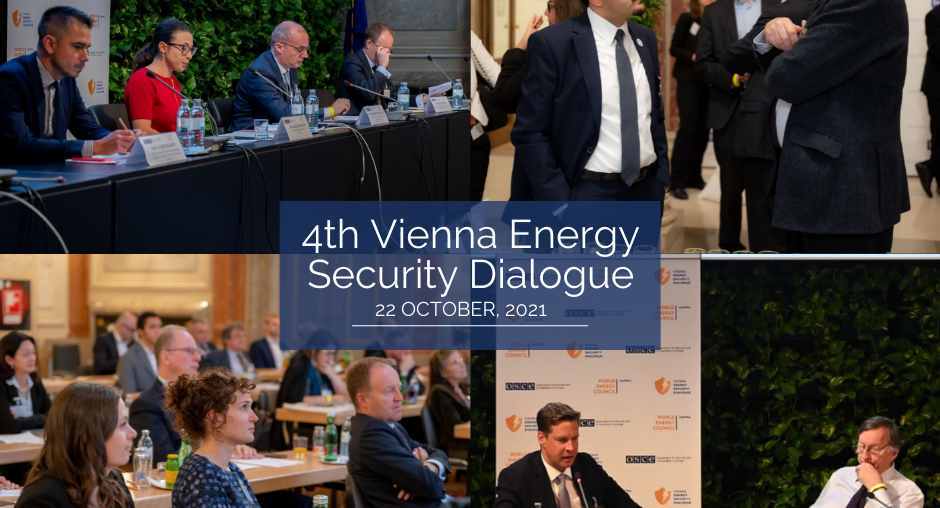International co-operation and dialogue needed to overcome current energy crisis, say participants at OSCE-supported Fourth Vienna Energy Security Dialogue

The energy sector is facing unprecedented challenges, requiring enhanced international co-operation and dialogue among energy producers, consumers and transit countries; concluded experts at the 4th Vienna Energy Security Dialogue, supported by the Office of the Co-ordinator of OSCE Economic and Environmental Activities, held on 22 October 2021 in Vienna.
The OSCE, the World Energy Council Austria, Ernst & Young and the Federation of Austrian Industries hosted the event at a key moment in time. As the world recovers from the pandemic, participants agreed that the increase in energy demand and gas supply shortages have caused energy prices to spike and placed the industry under tremendous pressure.
“The swift pick-up of the economy and a resulting surge in energy demand has triggered a new energy crisis,” said Igli Hasani, Co-ordinator of OSCE Economic and Environmental Activities. “These developments have brought the energy sector to the forefront of the political debate, triggering new discussions about the relevance of traditional fuels and raising concerns about energy security in the age of net-zero ambitions.”
More governments and organizations worldwide are rolling out their plans to be net-zero by 2050/2060, or sooner in some cases, indicating a consensus among the international community about where the energy sector is going.
World Energy Council Secretary General and CEO Angela Wilkinson, the keynote speaker, said that current debates around energy price had exposed the trickiness of balancing energy security, sustainability and affordability. “While the pathway is certainly much clearer than it was even one year ago, there are still numerous obstacles to overcome. Humanizing energy is the best way to avoid the urgency of the global energy transition creating a new threat to global peace. We need to better prepare all levels of society for the inevitable shift in social power structures as the world shifts to more sustainable energy and renewable power systems,” she said.
Ayed S. Al-Qahtani, OPEC Director Research Division, Rana Adib, REN21 Executive Director and Mark Copley, EFET CEO, shared their insights on the implications of the current energy crisis and the transition within their respective industries.
The panelists discussed energy security in the age of renewables, availability of critical minerals, post-pandemic recovery plans and energy geopolitics. They also delved into the role of energy markets in bridging the emissions gap, policies and tools to internalize carbon costs and the challenges brought about by the energy transition for industry and society.
Participants highlighted the importance of this year’s dialogue to build momentum in the lead-up to COP26, which will take place in Glasgow, United Kingdom, from 31 October to 12 November 12.
